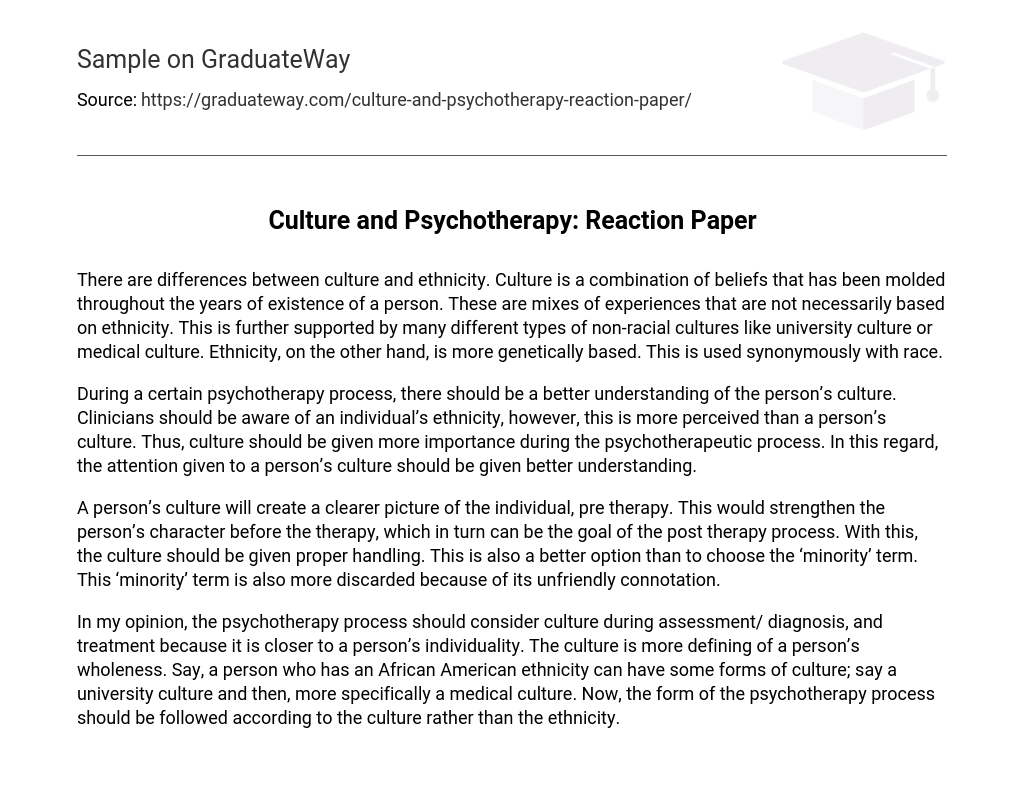There are differences between culture and ethnicity. Culture is a combination of beliefs that has been molded throughout the years of existence of a person. These are mixes of experiences that are not necessarily based on ethnicity. This is further supported by many different types of non-racial cultures like university culture or medical culture. Ethnicity, on the other hand, is more genetically based. This is used synonymously with race.
During a certain psychotherapy process, there should be a better understanding of the person’s culture. Clinicians should be aware of an individual’s ethnicity, however, this is more perceived than a person’s culture. Thus, culture should be given more importance during the psychotherapeutic process. In this regard, the attention given to a person’s culture should be given better understanding.
A person’s culture will create a clearer picture of the individual, pre therapy. This would strengthen the person’s character before the therapy, which in turn can be the goal of the post therapy process. With this, the culture should be given proper handling. This is also a better option than to choose the ‘minority’ term. This ‘minority’ term is also more discarded because of its unfriendly connotation.
In my opinion, the psychotherapy process should consider culture during assessment/ diagnosis, and treatment because it is closer to a person’s individuality. The culture is more defining of a person’s wholeness. Say, a person who has an African American ethnicity can have some forms of culture; say a university culture and then, more specifically a medical culture. Now, the form of the psychotherapy process should be followed according to the culture rather than the ethnicity.





